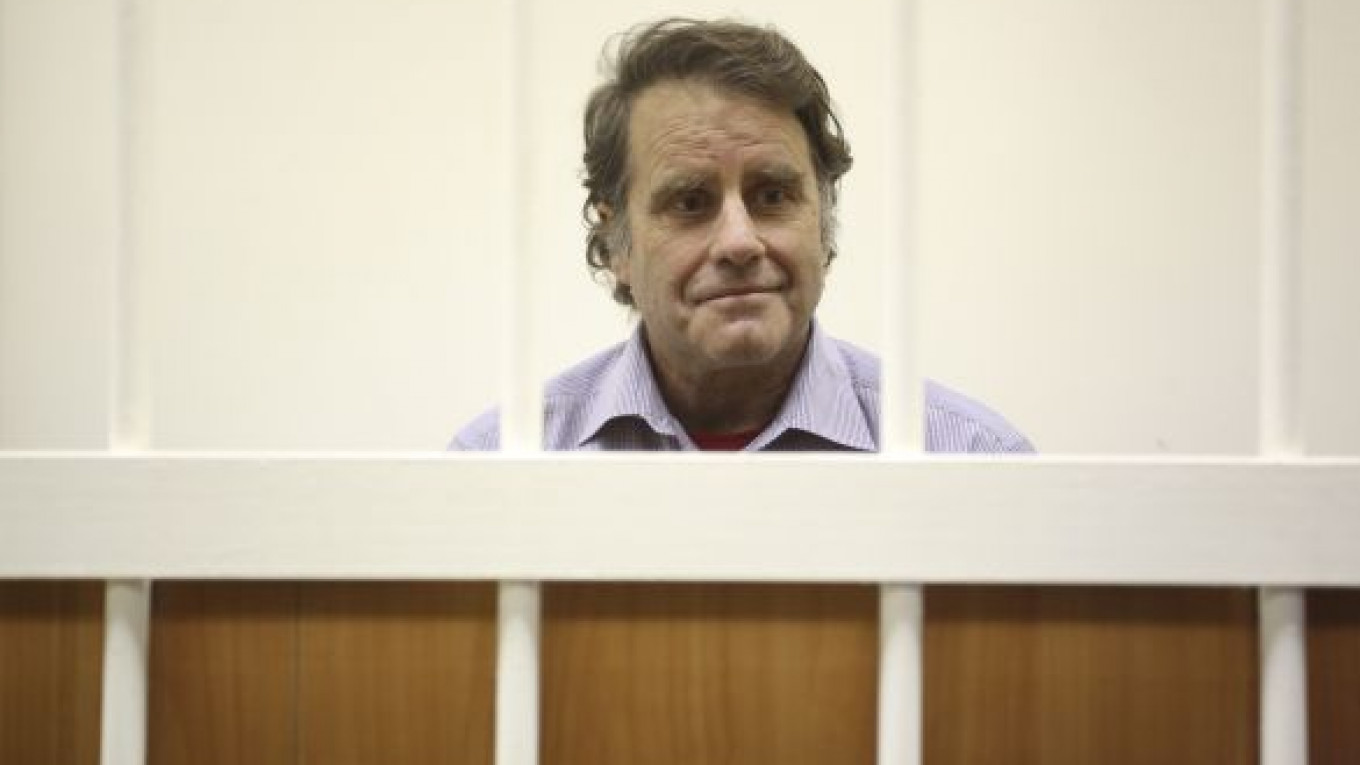ST. PETERSBURG — Seven more Greenpeace activists arrested by Russian coast guards during a protest against Arctic oil drilling were granted bail on Wednesday, including the U.S. captain of their ship, in a further sign of an easing of their treatment.
"I'm going to enjoy the fact that I can walk more than just three yards in the cell, and some fresh air," Faiza Oulahsen, a Dutch citizen, said from the courtroom cage where she had followed the proceedings.
"I'm going to have a good meal, and I'm going to call my family because I haven't spoken to them in more than two months."
Nineteen of the 30 people detained Sept. 18 have now been granted bail this week following criticism of President Vladimir Putin over what was widely seen in the West as their harsh treatment. All previous bail requests had been refused.
None of those in pre-trial detention have their passports, and Greenpeace said it was not clear how much their movement would be restricted.
One of the 30 had his detention extended by three months on Monday, and all of those aboard the Arctic Sunrise icebreaker during the protest at a Russian oil rig could still face seven-year jail terms on hooliganism charges.
Asked whether the decision to grant him bail pleased him, Captain Peter Willcox, looking tired and wearing a white and purple checkered shirt, said: "Very, very much."
He was then led out of the courtroom in handcuffs by four policemen.
Willcox, 60, has been a Greenpeace activist for more than 30 years and was the skipper of the environmental advocacy group's ship Rainbow Warrior when it was blown up and sunk by the French secret service in 1985.
Also granted bail in the city of St. Petersburg, besides Oulahsen, were three Britons — Alexandra Harris, Kieron Bryan and Anthony Perrett — and Anne Mie Roer Jensen from Denmark, Greenpeace said. Bail was set at 2 million rubles ($61,100).
Of the 19 people who have appeared in court hearings so far this week, only Australian Colin Russell has had his detention extended. Greenpeace says it is baffled by the decision to keep Russell, 59, in custody for three more months.
During the protest, some of the Greenpeace activists tried to scale the Gazprom-owned Prirazlomnaya oil platform in the Pechora Sea. They were halted by armed coast guards.
The arrests unleashed international criticism of Putin and the initial charges of piracy — which carried a 15-year jail term — were dropped.
Greenpeace says it has already posted bail for nine of those detained but that bureaucratic obstacles had to be resolved before their release, which may not be before the weekend.
Investigators have sought three-month extensions of detention for the activists from 18 countries, but the Kremlin may believe releasing some on bail could ease criticism of Russia, which hosts the Winter Olympics in February.
Although the attitude of the courts may be changing, Putin's spokesman, Dmitry Peskov, said the president had not discussed the case at his weekly Security Council meeting.
Putin has described the Arctic as important to Russia's economic future and security, and Greenpeace has said Russia's treatment of the activists was meant to frighten off campaigners protesting against the exploration of natural resources there.
A Message from The Moscow Times:
Dear readers,
We are facing unprecedented challenges. Russia's Prosecutor General's Office has designated The Moscow Times as an "undesirable" organization, criminalizing our work and putting our staff at risk of prosecution. This follows our earlier unjust labeling as a "foreign agent."
These actions are direct attempts to silence independent journalism in Russia. The authorities claim our work "discredits the decisions of the Russian leadership." We see things differently: we strive to provide accurate, unbiased reporting on Russia.
We, the journalists of The Moscow Times, refuse to be silenced. But to continue our work, we need your help.
Your support, no matter how small, makes a world of difference. If you can, please support us monthly starting from just $2. It's quick to set up, and every contribution makes a significant impact.
By supporting The Moscow Times, you're defending open, independent journalism in the face of repression. Thank you for standing with us.
Remind me later.






